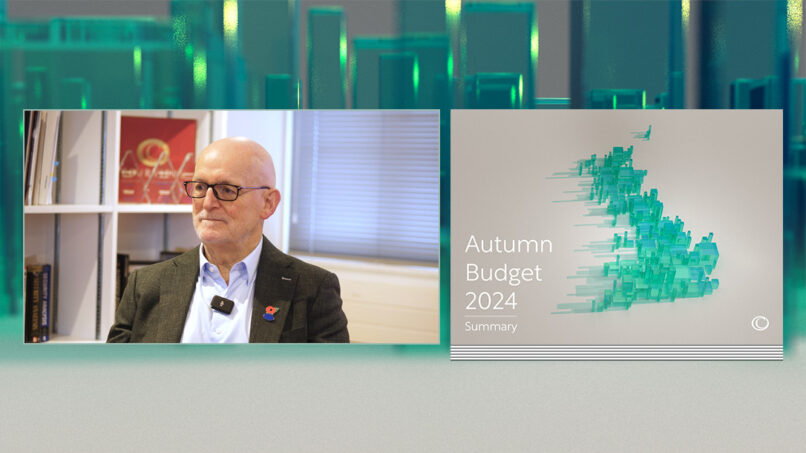Withdrawing too much from your pension savings can adversely affect your income in retirement and in extreme cases your pension pot could run dry. That’s the reasoning behind new rules introduced at the start of June aimed at giving people a ‘stronger nudge’ towards Pension Wise, the free government service from MoneyHelper that offers impartial guidance about pensions options.
“The FCA (Financial Conduct Authority) is concerned that since the 2015 Pension Freedoms were introduced more and more people are flexibly accessing their pensions, without having sufficient knowledge about what this means,” explains Paul Stewart-Gillham, Courtiers Head of Pension & Investment Administration.
The FCA found that half of all Defined Contribution (DC) savings accessed in the contract market were accessed without advice or guidance. Paul says, Pension Wise’s aim “is to provide people with the facts to make the right decisions depending on their individual circumstances.” According to figures from the Money and Pensions Service, just 14% of people who accessed their pension pot in 2019/20 used Pension Wise.
When the new rules apply
Although there are some exemptions, which are covered later, the new rules kick-in when a person applies or communicates an intention to access their pension flexibly or to transfer a pension to another scheme in order to access the pension flexibly.
The rules apply to both personal and occupational DC pensions, although Paul explains that the situation is complicated by the different legislation and rules that underpin the two types of pensions and the slightly different approaches taken by the relevant regulators (the FCA and the Pensions Regulator respectively).
For example, whereas the rules relating to occupational pensions state that stronger nudge should not be delivered if a consumer has received regulated financial advice or guidance from Pension Wise in the previous 12 months, the FCA considers that all consumers should receive a nudge, including those who have already received guidance or taken regulated advice within the past year.
The choice: receive guidance or opt out
Under the new rules, in order to proceed with an application to access funds from a DC pension, Paul says, “people will need to have received guidance from Pension Wise or have actively opted out. Where a person opts out they must also have notified their pension scheme they are doing so.” While opting out can be verbal, the majority of pension providers require it to be in writing. In most cases this must be conveyed in a communication whose sole purpose is opting out.
Booking
If a person does decide to seek guidance from Pension Wise, the pension provider/trustee “is required to book an appointment with Pension Wise for them, or they must give the person the information so they can make the appointment themselves,” Paul continues. “The intention is to make taking pensions guidance a normal part of the application process.”
Exemptions
There are a number of exemptions from the stronger nudge rules.
These include:
- when the person is under the age of 50 (unless they are flexibly accessing their pension benefits due to poor health)
- where the intention is not to flexibly access benefits but for some other reason such as pension consolidation. That said, where a client is over the age of 50, the FCA says a firm “may assume” that any pension transfer request is being made for the purpose of accessing pension benefits. This effectively leaves the decision of whether or not to apply the stronger nudge rules up to the firm
- the firm has already provided the individual with appropriate retirement risk warnings in relation to their decision to access their pension savings and the firm has reasonable grounds to believe that the retirement risk warnings remain appropriate for the individual
- the firm is (only) giving the client regulated advice on the options available to them in terms of accessing their pensions.
How will stronger nudge affect Courtiers clients?
In line with the stronger nudge rules, ”If Courtiers clients enquire about accessing their pension fund and haven’t elected to receive regulated advice, we’ll be able to offer an appointment with Pension Wise,” says Paul. “Or they’ll have the choice of opting out.”
There will be some extra forms to complete to record whether they’ve already received guidance and where applicable in relation to opting out. This could potentially increase the time it’ll take to access their pension, which is important to bear in mind, especially if funds are required at short notice.
Will it work?
Although the government has pinned a lot of faith on a stronger nudge making significant inroads into the pension guidance gap, Paul argues that it introduces guidance too late in the decision process to make much difference. “By the time providers are directing members towards Pension Wise, they have already made the decision to access their funds and may see the extra steps as a delay. This negates the impact of stronger nudge and its effectiveness.”
Paul would like to see stronger nudge introduced to people earlier, and suggests the rules, including the option of a Pension Wise appointment, should kick in at the age of 50. This is the age at which Courtiers Private Clients and those who have a Courtiers Group Sipp, who are not already in pension drawdown receive initial’ wake-up packs’. “This would give individuals more time to carefully consider the guidance given their own circumstances and ambitions.”
What is Pension Wise?
- Pension Wise is a free impartial government backed service set up with the intention of helping people who are approaching retirement to better understand their options when it comes to accessing their Defined Contribution pension savings.
- It is delivered over the phone by MoneyHelper and face-to-face through Citizens Advice.
- An appointment takes between 45 minutes and an hour.
- According to a report by the Money and Pensions Service, 14% of the 670,000 people who accessed their pension pots in 2019/20 self-reported having used Pension Wise, with 94% very or fairly satisfied with their experience.













